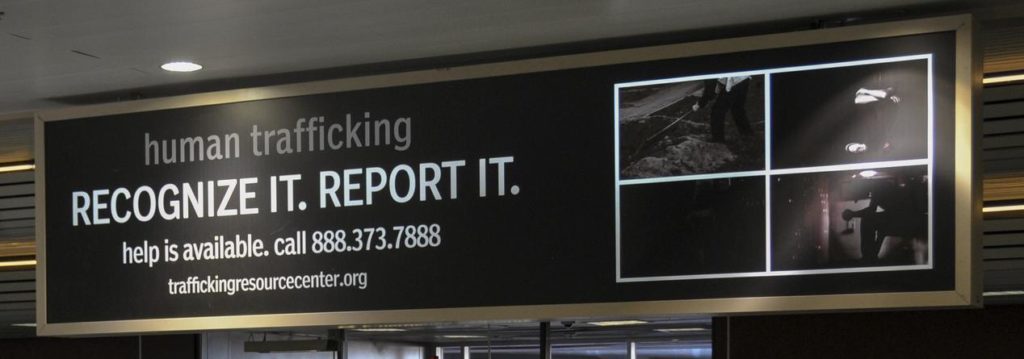A New Push Against Human Trafficking on Flights

U.S. airports, airlines and Homeland Security are working to educate employees and passengers for signs of exploited people they see traveling
A flight attendant notices a teenage girl uncomfortable with the older man she’s traveling with and leaves her a note in a bathroom. The teen writes back: “I need help.” A teenage boy from New Zealand on a one-way ticket to visit a sex offender is intercepted by a careful Los Angeles customs agent.
These are two stark examples of how airlines, airports and the Department of Homeland Security are stepping up efforts to thwart human trafficking, which is transporting people for forced labor or commercial sexual exploitation. Travelers will see a lot more warnings, and be encouraged to learn how to spot the crimes they may be sitting next to on flights.
Calls for Help
The National Human Trafficking Hotline says substantive calls and reported cases of human trafficking will increase 10% to 20% this year.
Source: National Human Trafficking Hotline
Training is expanding at airports, from skycaps to shop clerks, and signs are going up, including one in every bathroom stall at the Las Vegas airport. Over the next month or so, Delta Air Lines will start placing 8-foot-tall signs at gates in hub airports. Some give victims a number to text or call and others educate travelers about signs of trafficking.
“It’s happening right under our noses,” says Nancy Rivard, a former American Airlines flight attendant who is president and founder of Airline Ambassadors International, a group that conducts training for travel-industry workers. Stopping the illegal flow of people “takes us being alert and having the guts or the moral imperative to make a call,” she says. “You hope you’re wrong, but your action could save a life.”
Last year, the National Human Trafficking Hotline took 26,727 substantive calls involving 7,621 reported cases of trafficking humans for work or sex, according to the Polaris Project, the nonprofit that operates the hotline for the Health and Human Services Department.
This year’s numbers are running 10% to 20% higher, Polaris says.
Las Vegas knows that big events, from boxing matches to Super Bowl weekends, draw criminals along with other visitors. As local authorities stepped up efforts to thwart sex trafficking in particular, Rosemary Vassiliadis, director of aviation at McCarran International Airport in Las Vegas, realized “these monsters are coming through the airport.”
She started asking employees. Those working the taxi line told her they thought they saw it fairly regularly but didn’t know what to do. So the airport hired Airline Ambassadors to train front-line workers. Now everyone who works at the airport goes through a summary of the training when they get their airport-issued badge.
Ms. Vassiliadis says she flunked the training on first go—she instinctively tried to intervene in a situation that looked like someone was traveling against her will. That’s the wrong move—they’ll often run. Workers are trained to try to keep people in sight without spooking them and call the right authorities when they are able.
